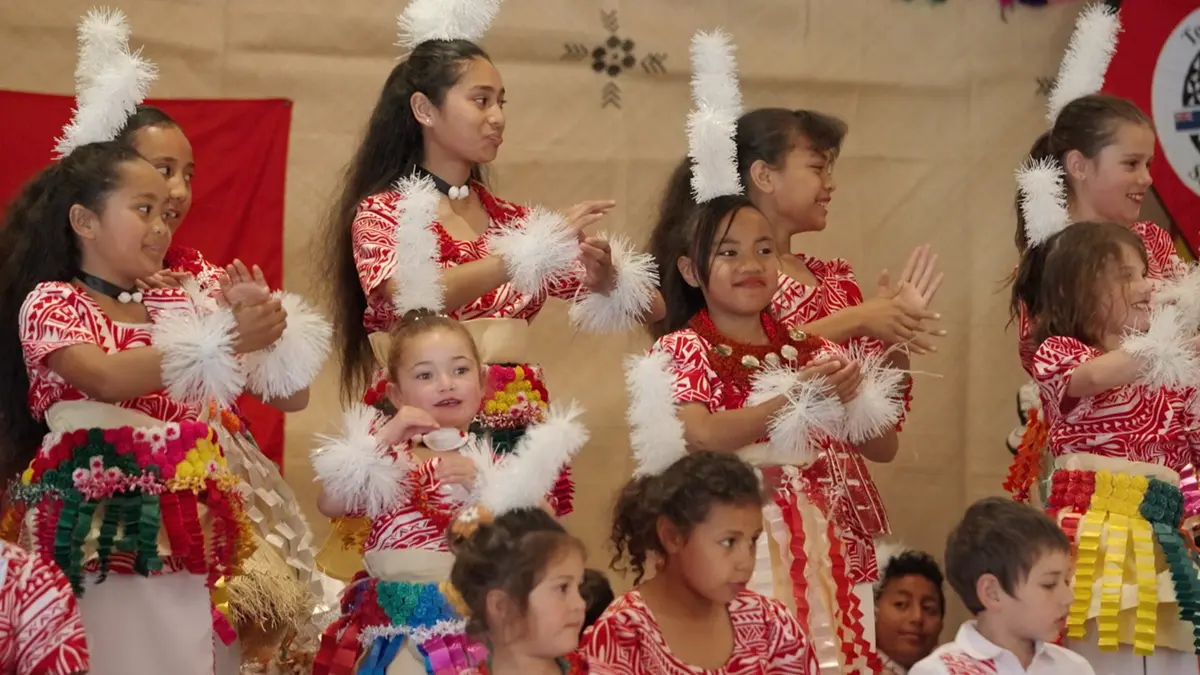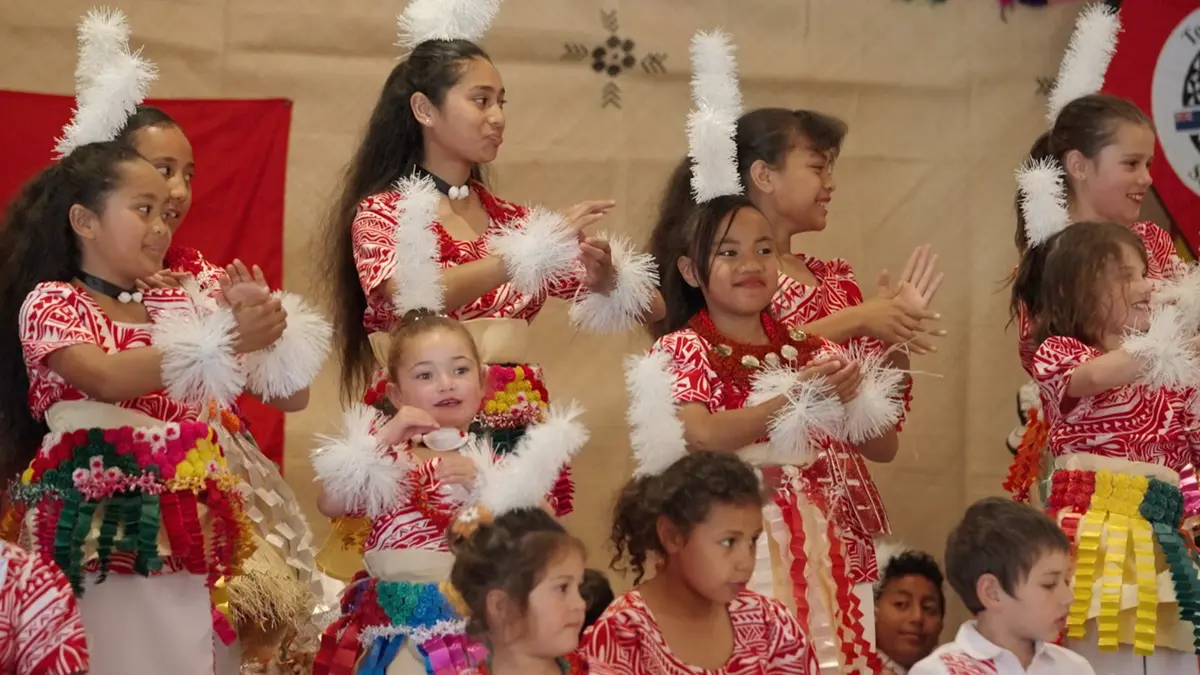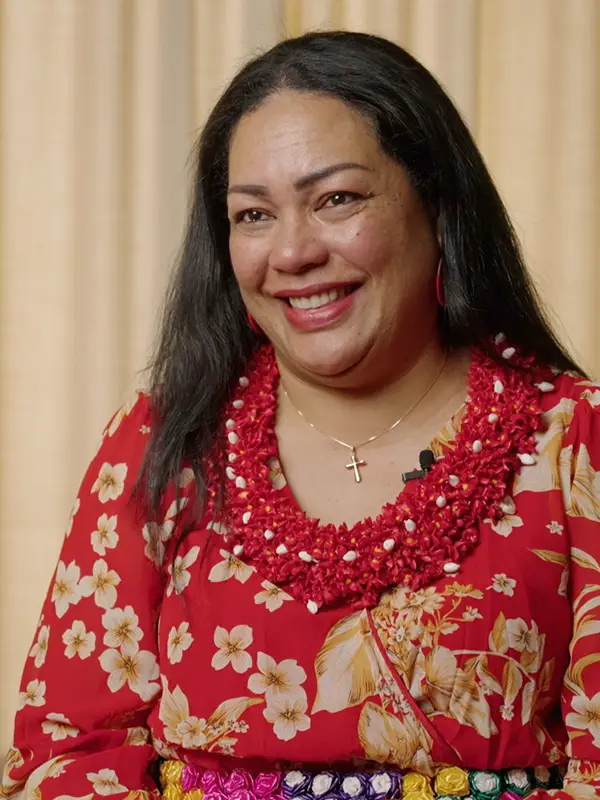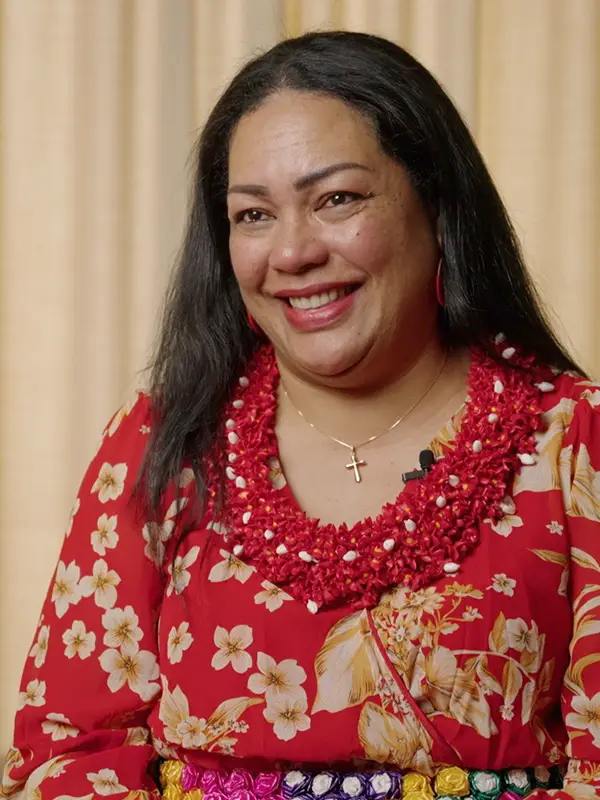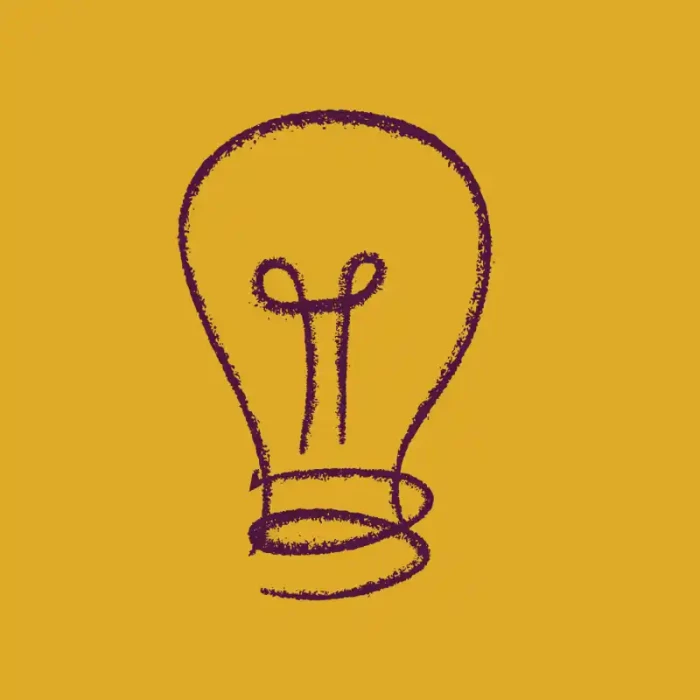
Creating a sense of belonging

22 February 2023
Sina Latu can't sleep at night knowing there's an opportunity for her to enrich her community and not do anything about it. A full-time social worker by day, Sina's evenings are filled with supporting her kāinga.
Creating a sense of belonging – Tongan Society South Canterbury (transcript)
Siesina Manoa Latu:
It’s worth all the running around the crazy work and everything, it’s worth it.
Kourtney Saulala:
Being in a small rural town there isn’t a lot of a Tongan community, so there wasn't a lot of networking or opportunities for us to connect with Will and our fanau, our children's culture and language, so it was quite isolating.
Siesina Manoa Latu:
We create the Tongan Society not only to support our kāinga and help them, but we need a group where we can feel that we connected. This is us, this is who we are, we are Tongans and this is our group.
Kourtney Saulala:
When I first started coming to the Tongan Society I sort of hovered with my children a lot and, you know I had to meet every need of theirs because I guess culturally that's how I've been brought up.
What I've learnt through the Tongan Society is more of it's a community. And so now I sort of come and I let my children run and everyone knows who they are and so you know if they're going into something they shouldn't be someone else stops them, or if they're hurt someone else picks them up and through creating them relationships they're just kind of like a wider extended family for us.
Now when I come, I can just kind of let the kids be kids and have fun and I get to kind of just enjoy myself.
'Ulukilupetea Langi:
I really do feel connected with my Tongan culture, especially those people around me.
In public and at school I normally speak English and I think the Tongan language is like flowing out of me.
I think the best thing being Tongan is getting to dance and be happy and just enjoy especially the food like I do.
Kolokiholeua Langi:
Being Tongan it's hard to fit in, it's a very diverse environment, different cultures, and countries and people and nationalities and without the Tongan Society you wouldn't get that sense of belonging.
'Ulukilupetea Langi:
I'm really proud to be a Tongan.
Kolokiholeua Langi:
I’m very proud to be Tongan.
Kourtney Saulala:
Since coming to the Tongan Society Blake is so confident. And so proud to be Tongan. She has learnt to tau’olunga, so to dance and she dances so beautifully.
Blake's 4 and so she's little and she just loves it, she just thinks it's fantastic she's so proud.
Watching Blake and seeing her perform makes me very emotional. I’m so so proud.
Will Saulala:
They've had, I think it was might have been a week where it was solely lea fakatonga where the kids had to stand up and speak, had to say their name where they're from and everything in Tongan.
Blake:
Mālō e lelei, ko hoku hingoá ko Blake, ʻOku ou taʻu fa.
Will Saulala:
I really think my children are very, very proud to be Tongan, and for the past few weeks I've been helping Blake with her dance.
I tell her Blake teuteu and so she stands there and gets ready and then out the blue my son will come and be standing here beside her saying‚ yep teuteu, I’m ready Dad, I’m ready too. And so it just makes me very proud just to see them getting ready and just wanting to learn and to dance.
I may not show it on the outside, but I am very, very proud.
Siesina Manoa Latu:
We know our community, we know the needs, we know the solution.
All the programmes that we created is because there's a need for it, and again we have the talanoa. We have a framework, it's roll out the mat. Like the women, we talk with the women they say ‘we want to learn how to sew, we want to learn how to weave’.
It's not more like us telling hey we should do this.
I'm so happy with what we have created we come up with a solution to the issue that needed to be addressed.
We do think as families together, for example the Ako Tonga. Even though it's for the primary school but the families come together, you cannot leave your baby at home and bring the other kids.
What matters is our fanau they are happy, you know they feel happy they feel proud that's all it matters so I'm so happy with that.
Ailine Luyten:
I think myself that it’s special cause lots and lots of other people in the community accept us as we are. I think it’s special.
Favourite thing for me is look at my grandkids learn how to speak a few Tongan words and do a little bit of dancing. And make me so warm, so I like to go and give them a wee fakapale.
I feel so happy that I know that they learn to accept and learn my own culture.
Siesina Manoa Latu:
We need to look at a 5 years plan, 10 years plan because it's going to grow and it is growing.
I feel we have helped our future.
What started as a support group for a few young Tongans has grown into the Tongan Society South Canterbury, with more than 200 members.
In the beginning, Sina and her husband would host informal get-togethers and barbecues for the Tongan boys who came to Timaru on a rugby scholarship.
"We needed something where we can feel we belong. A group where we can feel we're connected, that this is us, this is who we are, we're Tongans and this is our group," says Sina.
"Pauline, now the Tongan Society president and I decided to call a meeting with our kāinga . We learned that this is what we all want – everyone thinks it's a good idea."
Using a 'roll out the mat' framework and regular talanoa , the society now runs a wide range of programmes each created in response to the community.
No one is left behind
The fanau ako sessions take place once a week after school for the children to learn about Tongan language and culture.
The youth have talanoa , sports, games nights, and a programme to help them get their driver's license. Thirteen out of seventeen teenagers achieved their driver's license by the end of 2022.
"The youth tell us what they want and we are here to support that. The driver's license gives our youth independence and boosts their self-esteem. They can also help their parents with transport."
"It also ensures they are driving legally, keeps them safe and out of trouble. As a youth justice social worker, I don't want to see them end up in the system because of a silly mistake."
The women’s wellness workshops provide a space for women to connect, learn about women's health and develop new skills like sewing, weaving and crafting.
"We know that the women are the most isolated people in our family – the men go to work and the women stay home to look after the children, so we do the women’s wellness workshop to help them get out of the home, connect and feel valued."
Weekly kava sessions are a space for men to talanoa about topics, including mental health. They also run a healthy families campaign and a men's veggie garden programme.
We know our community, we know the needs, we know the solution. Everything we do, we do as a family, together.
Sina Latu
“Time waits for no man, our children are growing”
Tākai funding has supported the society to grow initiatives that focus on the wellbeing of their kāinga , incorporating positive parenting. Sina hopes to increase the reach of the society to continue supporting the growing Tongan community in South Canterbury.
"Seeing the confidence growing in people and everyone getting together to celebrate, it's worth all the running around and the crazy work, everything it's worth it."
"I feel we have helped our future – among our youth is the next leader of our society who will learn and grow over the next five to ten years before they carry on what we have started."
